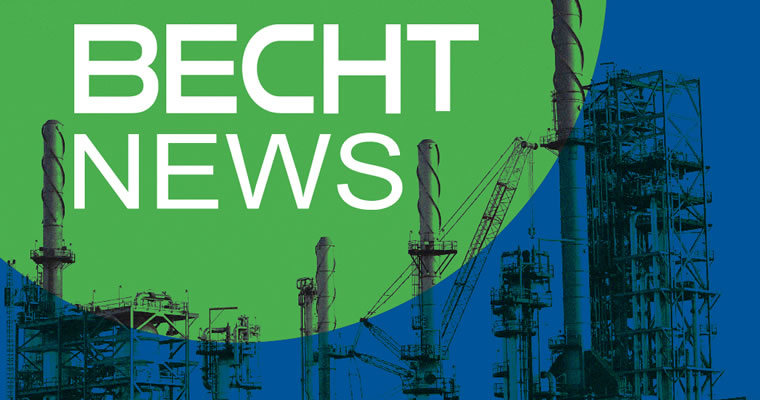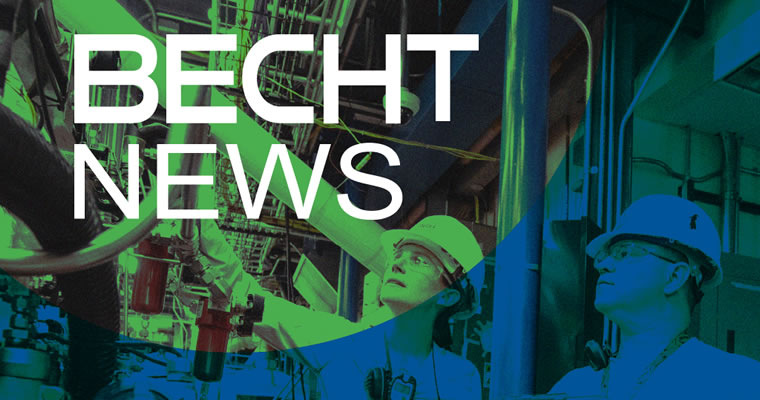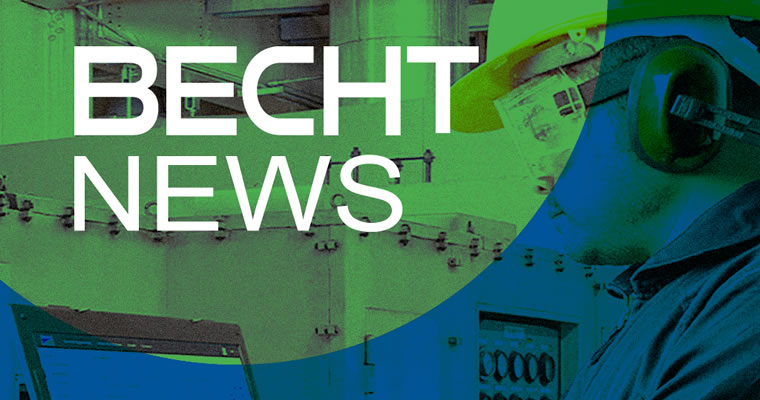COVID-19 – Bringing Innovation, Resilience And Self Reliance To Address A Frightening Situation
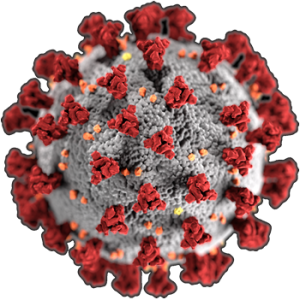 The introduction of the COVID-19 virus has changed our world overnight. This frightening event has shut down our economy, closed schools, put new rules into our society and as of today resulted in more than 74,000 deaths in the US. To put this in perspective just over 58,000 Americans died in the Vietnam war. The death toll from COVID-19 is certain to rise. However, as terrible as the virus is, it is amazing how quickly the US has responded, putting new norms in place, expanding heath care facilities and going after a cure and vaccine for this virus. Here at Becht, we have quickly taken steps to protect employees and clients, provide services on a remote basis and put in place a Webinar series addressing low rate operation. This blog will discuss another crisis in our past and how innovation, resilience and self-reliance played a role in overcoming the threat and can help address the challenges of COVID-19.
The introduction of the COVID-19 virus has changed our world overnight. This frightening event has shut down our economy, closed schools, put new rules into our society and as of today resulted in more than 74,000 deaths in the US. To put this in perspective just over 58,000 Americans died in the Vietnam war. The death toll from COVID-19 is certain to rise. However, as terrible as the virus is, it is amazing how quickly the US has responded, putting new norms in place, expanding heath care facilities and going after a cure and vaccine for this virus. Here at Becht, we have quickly taken steps to protect employees and clients, provide services on a remote basis and put in place a Webinar series addressing low rate operation. This blog will discuss another crisis in our past and how innovation, resilience and self-reliance played a role in overcoming the threat and can help address the challenges of COVID-19.
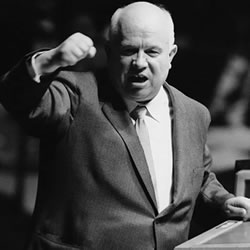 I grew up in Wyoming, Cheyenne to be exact, in the 1950’s and 60’s. Some of our experiences growing up remind me of our current situation, fears and challenges. I was in grade school in 1956 when the Cold War got a jump start when Soviet First Secretary Nikita Khrushchev said “We will bury you.” Tensions between the nations were high and this statement combined with huge nuclear arsenals on both sides sent chills through our nation. Then in 1957 when Russia sent Sputnik, a beach ball size satellite, into low altitude orbit, it was clear we were not leading the Space Race. Grade school was punctuated by frequent timed drills to run home as quickly as possible in the event of a Soviet nuclear missile launch. Looking back, it seems silly to dive under your desk or run home considering Cheyenne was ground zero, surrounded by Atlas and Minuteman nuclear missile silos and a number 1 target in the event of war. Perhaps these actions made us think we were doing something right in the face of the apocalypse.
I grew up in Wyoming, Cheyenne to be exact, in the 1950’s and 60’s. Some of our experiences growing up remind me of our current situation, fears and challenges. I was in grade school in 1956 when the Cold War got a jump start when Soviet First Secretary Nikita Khrushchev said “We will bury you.” Tensions between the nations were high and this statement combined with huge nuclear arsenals on both sides sent chills through our nation. Then in 1957 when Russia sent Sputnik, a beach ball size satellite, into low altitude orbit, it was clear we were not leading the Space Race. Grade school was punctuated by frequent timed drills to run home as quickly as possible in the event of a Soviet nuclear missile launch. Looking back, it seems silly to dive under your desk or run home considering Cheyenne was ground zero, surrounded by Atlas and Minuteman nuclear missile silos and a number 1 target in the event of war. Perhaps these actions made us think we were doing something right in the face of the apocalypse.
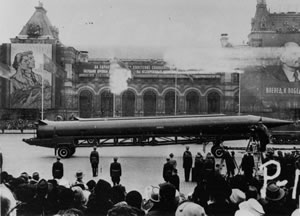 In 1962 the Cuban Missile Crisis happened and brought us to the brink of nuclear war. The Soviet Union planned to deploy nuclear capable ballistic missiles 90 miles from the US coastline. Dad was a prepared kind of guy so my after-school job was to hump 40-pound concrete blocks to a 16-foot long 2 by 12 going from the garage into the basement. I was sliding block after block to Dad who would stack them since we were building a government designed bomb shelter. Then after dinner I mixed concrete for Dad so he could place the blocks. The idea was to emerge after 2 weeks in the shelter to see what was left. Again, a pretty silly idea but I got in shape for playing football that year moving an endless stack of concrete blocks.
In 1962 the Cuban Missile Crisis happened and brought us to the brink of nuclear war. The Soviet Union planned to deploy nuclear capable ballistic missiles 90 miles from the US coastline. Dad was a prepared kind of guy so my after-school job was to hump 40-pound concrete blocks to a 16-foot long 2 by 12 going from the garage into the basement. I was sliding block after block to Dad who would stack them since we were building a government designed bomb shelter. Then after dinner I mixed concrete for Dad so he could place the blocks. The idea was to emerge after 2 weeks in the shelter to see what was left. Again, a pretty silly idea but I got in shape for playing football that year moving an endless stack of concrete blocks.
On the plus and more practical side, growing up in Wyoming did teach valuable skills and life lessons. Self-reliance was at the top of the list. I learned to camp comfortably in winter, hunt and fish, run plumbing and electrical wiring, rebuild car engines and other useful skills that came in handy growing up and could be useful in today’s chaotic world.
Fast forward to 2020. Celebrating on New Year’s Eve, it would have been impossible to imagine in a few short months our way of life would change dramatically and perhaps forever. Our lives would be threatened by an invisible enemy and our economy would be shut down. It was like the movie, “The Andromeda Strain,” was playing out in real time. Initially it seemed like many other epidemics where it would be confined to a small area of a remote country or rapidly contained. Unfortunately, it quickly became apparent this was the real thing and it would threaten the United States and the rest of the world.
However, out of this terrible, unprecedented event in human history, we may develop many innovative solutions to preserve our way of life. It is remarkable how quickly the focus of the medical system, food distribution system, central and state governments switched gears and became focused on the emergency needs of the country. Yes, we were short on toilet paper for a few weeks but even that crisis got sorted out. We have learned to share resources, help our neighbor and get by with what we have. Simple pleasures have trumped luxury at least for the time being.
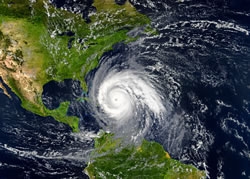 While living in the Gulf Coast I went through two hurricanes. While this was a micro event compared to the Corona virus, all of a sudden, a few gallons of gasoline to run a generator, food in a freezer powered by that generator and home security became very important. Maslow’s hierarchy of needs took over during the hurricanes and is present in our current situation. People have adapted to life behind a mask, social distancing and lack of availability of goods and services to assure increased public safety.
While living in the Gulf Coast I went through two hurricanes. While this was a micro event compared to the Corona virus, all of a sudden, a few gallons of gasoline to run a generator, food in a freezer powered by that generator and home security became very important. Maslow’s hierarchy of needs took over during the hurricanes and is present in our current situation. People have adapted to life behind a mask, social distancing and lack of availability of goods and services to assure increased public safety.
What I find amazing is how quickly we transitioned to a new way of life and how the situation changed on a daily basis. We quickly started wearing face masks, stayed home, quit shaking hands and practiced social distancing. Instead of having friends over, video dinners and cocktail parties became the norm. After a few weeks of confinement, seeing and talking to friends via computer was a welcome relief.
Becht has done an exceptional and creative job coping with the COVID-19 situation. The Company developed numerous, highly professional Webinars on low rate operation. These presentations were put together very quickly and bring together world class experts on a no cost basis to help our current and potential future clients. Each expert presents a different aspect of the topic. For example, in stationary equipment inspection, unit layup, HTHA, CUI and other areas are covered by world class experts. The attendees have the opportunity to ask questions which can be submitted ahead of time or during the Webinar. We also follow up with attendees after the sessions. To date we have had several thousand attendees and encourage everyone to sign up for our future Webinars. The Webinars have had another benefit by allowing attendees to put a name with a face and gain first-hand knowledge of our experts’ style and depth of knowledge.
Becht has extensive experience supporting all aspects of plant design, construction, startup and ongoing operation and maintenance. We have a large staff with experience at major operating companies in the refining, petrochemical, nuclear and power industries.

